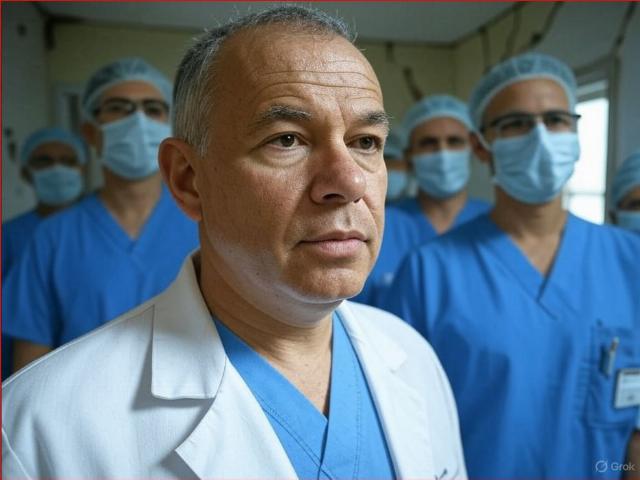Don't Trust Me, I'm a Doctor
“Trust me, I’m a doctor” is a humorous expression that suggests one’s opinion should be accepted without question, regardless of whether the person offering the opinion has actual medical expertise or experience.
The assumption is that physicians are knowledgeable, competent, and trustworthy. At one time, few would have questioned that assumption.
This is one reason why trust in doctors and the medical profession has declined sharply over the past five years. You don’t have to take my word for it; I live and work in this new world of dwindling trust and observe it all around me.
The Journal of the American Medical Association conducted a survey of nearly half a million American adults across all 50 states and found, “The COVID-19 pandemic has been associated with a continuing decrease in trust in physicians and hospitals, which may necessitate strategies to rebuild that trust to achieve public health priorities.”
Interestingly, another group of healthcare professionals topped the list, “Three in four Americans consider nurses highly honest and ethical, making them the most trusted of 23 professions rated in Gallup’s annual measurement.” Those surveyed must have missed the incessant TikTok videos of nurses dancing in ICUs during COVID.
And to no surprise for anyone engaged in politics and the news, “The least trusted professions, with more than half of U.S. adults saying their ethics are low or very low, are lobbyists, members of Congress and TV reporters.”
People are increasingly wary of a healthcare system that is supposed to make them feel better but instead leaves them stressed and frustrated. And while much ire is directed at insurance and pharmaceutical companies, doctors are the front face of the system and are losing the public’s confidence, as well.
Consider the business and school lockdowns that closed churches while allowing strip clubs and liquor stores to remain open. It was illegal to surf alone in the Pacific Ocean, yet thousands marching together on city streets in the name of BLM or Antifa were considered perfectly safe and healthy.
Masks were deemed ineffective at protecting against tiny viruses until they were mandated as effective and lifesaving. As Dr. Anthony Fauci acknowledged, social distancing was arbitrary; “It sort of just appeared.” How’s that for science? As Gomer Pyle would say, “Shazam, shazam!”
Children lost years of education and social interaction to avoid catching a viral illness that posed virtually no risk of death to children. Jobs, businesses, and livelihoods were devastated due to political motivations rather than medical science. What impact does this have on trust in the medical system?
The U.S. healthcare system is failing Americans. The Commonwealth Fund reports, “The US spends the most on healthcare but has the worst health outcomes among high-income countries.” In most businesses, this would signal a death knell.
The Medicare fee schedule, which serves as the basis for all third-party insurance payments, will reduce reimbursement by 3% in 2025. This marks the fifth consecutive year of payment reductions, even as the cost of providing care continues to rise.
Physicians are compelled to see more patients throughout their workday, which results in spending less time with each individual and longer waits for appointments or to see the doctor during a brief office visit.
Patients are understandably frustrated and now see a doctor’s visit similar to a DMV trip.
The loss of trust extends beyond doctors; it includes the entire healthcare system, encompassing government-run health agencies and insurance companies.
The public has been overwhelmed by a continuous influx of misinformation, especially concerning the COVID pandemic, and has encountered censorship for asking questions or expressing complaints. Americans have been made to believe that our healthcare system is the best.
Although the system may benefit certain patients in particular situations, we fail spectacularly on a population level. Practicing medicine is no longer a calling or profession; instead, it has become a people-facing service trade influenced by price controls and an increasing number of rules and regulations.
Any private sector business operating in such a manner would quickly go out of business.
Clearly, what we are doing is not working, yet we are following the definition of insanity -- doing the same thing repeatedly and expecting a different result.
We must be able to trust our doctors with our lives and well-being. Can we still do that?
Brian C. Joondeph, M.D., is a physician and writer. Follow me on Twitter @retinaldoctor, Substack Dr. Brian’s Substack, Truth Social @BrianJoondeph, LinkedIn @Brian Joondeph, and Email brianjoondeph@gmail.com.
FOLLOW US ON
Recent Articles
- Biden's National Censorship Regime
- Four Years, Five Fiascos: The Toll of Government Overreach
- The Legacy of the Roberts Court
- Parental Rights at Risk from Tyrannical State Overreach
- Alexander Hamilton: A Brilliant and Conflicted Leader
- The Death of the Center-Left in America
- ‘Make Peace, You Fools! What Else Can You Do?’
- When Nuclear Regulation Goes Awry
- The Danger of Nothing
- A New Pope With Courage
Blog Posts
- Pope Francis kicked an important can down the road
- Media hypocrisy: Hegseth must go because he’ll get us all killed
- Britain bans French philosopher who conceptualized the 'great replacement' theory, from entering country
- AOC versus visionary leadership
- The color revolution waged by our judiciary
- Fredi Otto, the new Greta Thunberg
- Why Democrats should become Republicans
- Terrorism works?
- Are we prepared for a new Chinese period of the warring states?
- Trump challenges the Fed
- The last Austrian standing
- Tim Walz: helping China colonize Minnesota?
- Another insubordinate officer?
- Keeping terrorists in America
- Celebrate Earth Day by not burning a Tesla







